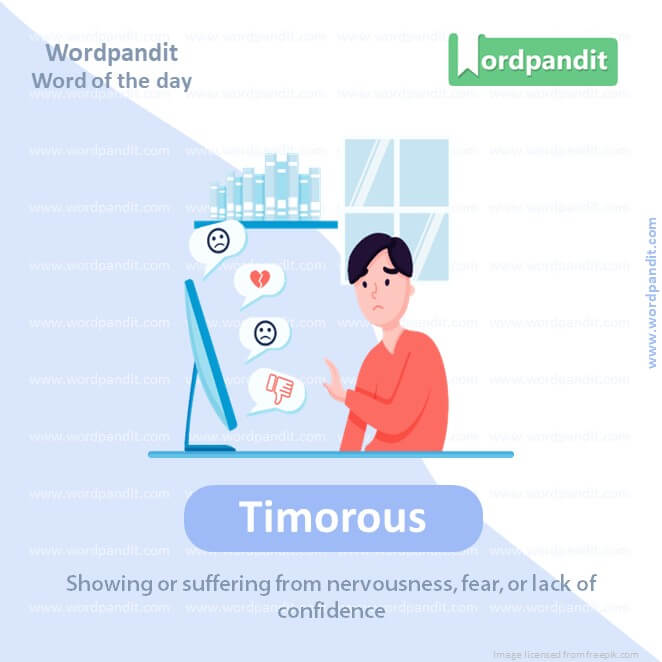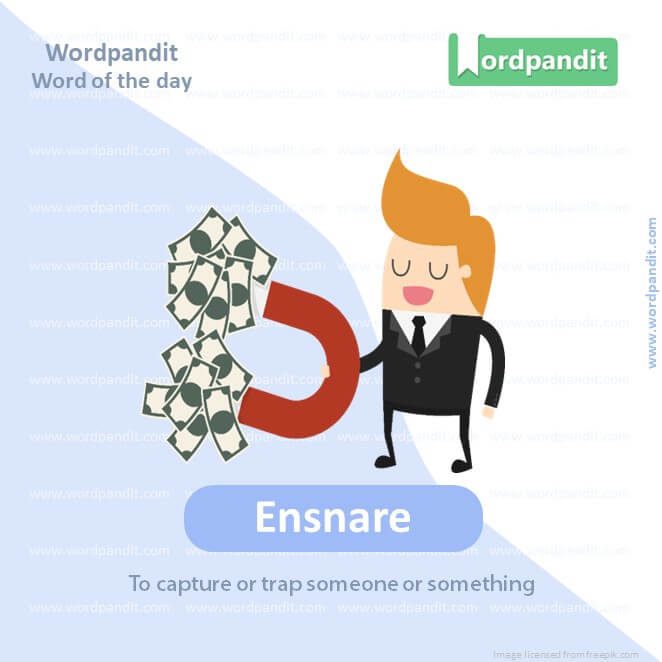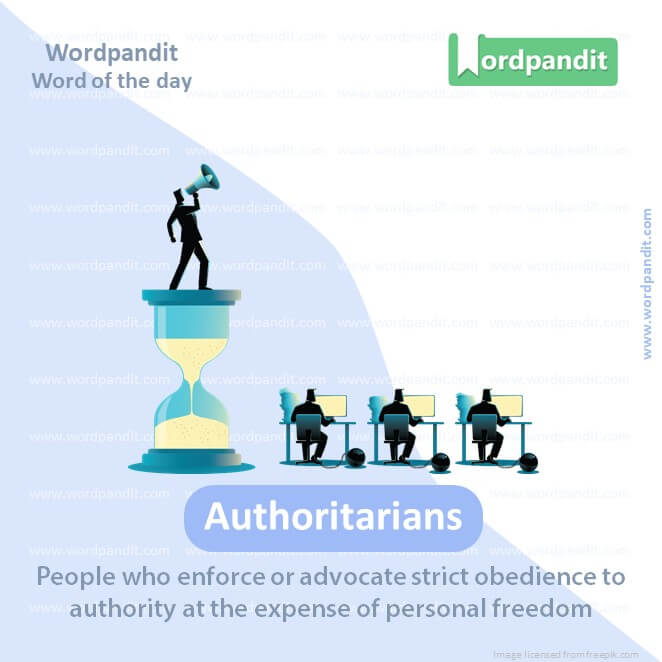Daily Vocabulary Words: List of Daily Used Words in Leading International Newspapers
Hi there. Welcome to this special section @ Wordpandit.
Our endeavour here is very simple: to highlight important daily vocabulary words, which you would come across in leading newspapers in the country. We have included the following newspapers in our selection:
• The New York Times
• The Washington Post
• Scientific American
• BBC
• The Guardian
• Psychology Today
• Wall Street Journal
• The Economist
We are putting in extensive work for developing your vocabulary. All you have got to do is be regular with this section and check out this post on a daily basis. This is your repository of words that are commonly used and essentially, we are posting a list of daily used words. Hence, this has significant practical application as it teaches you words that are used commonly in leading publications mentioned above.
Visit the website daily to learn words from leading international newspapers.
WORD-1: IMPLORING
CONTEXT: “The residents were seen imploring officials to act on the growing environmental crisis.” – The New York Times
SOURCE: The New York Times
EXPLANATORY PARAGRAPH: When you really, really want a toy, and you ask your mom in the nicest way possible, even making puppy eyes, you’re ‘imploring’. It means to beg or ask for something in a very serious or emotional way.
MEANING: To beg someone earnestly or desperately to do something (verb)
PRONUNCIATION: im-plor-ing
SYNONYMS: begging, pleading, entreating, beseeching, advocating, appealing
USAGE EXAMPLE:
1. She clasped her hands, imploring him to stay.
2. He spent the evening imploring a solution to the problem.
3. The boy was imploring his dad to buy him the toy.
4. She gave him an imploring look and he nodded in agreement.
WORD-2: MIRAGE
CONTEXT: “The promise of a utopian society proved to be a mirage, as the regime soon turned autocratic.” – The Guardian
SOURCE: The Guardian
EXPLANATORY PARAGRAPH: A mirage is like seeing a big, delicious ice cream cone on a hot day, but when you go to grab it, it’s not actually there. It’s an optical illusion usually seen in deserts or on hot roads.
MEANING: An optical illusion caused by atmospheric conditions or something that appears real or possible, but is not (noun)
PRONUNCIATION: mi-rahj
SYNONYMS: illusion, hallucination, delusion, apparition, phantasm, fantasy
USAGE EXAMPLE:
1. He chased the mirage of wealth and fame.
2. The water on the hot road was just a mirage.
3. To the starving man, the fruit tree was a mirage.
4. In the desert, a lake can appear as a mirage.

WORD-3: TIMOROUS
CONTEXT: “The timorous response to the crisis by the government has been criticized all over.” – The Washington Post
SOURCE: The Washington Post
EXPLANATORY PARAGRAPH: Timorous is like when you’re scared of the dark and you don’t want to go to the bathroom alone at night. It means you’re showing or suffering from nervousness or fear.
MEANING: Showing or suffering from nervousness, fear, or a lack of confidence (adjective)
PRONUNCIATION: tim-or-us
SYNONYMS: fearful, afraid, scared, nervous, anxious, timid
USAGE EXAMPLE:
1. The little boy gave a timorous smile.
2. Her voice was timorous yet determined.
3. The timorous animal peeked from behind the bushes.
4. She gave a timorous cry at the sight of the dark.

WORD-4: ENSNARE
CONTEXT: “Many animals are ensnared by plastic waste that ends up in our oceans.” – Scientific American
SOURCE: Scientific American
EXPLANATORY PARAGRAPH: Ensnare is like when someone gets stuck in a spider’s web. It means to attract or trap someone, usually by trickery or deceit.
MEANING: To capture or trap someone or something (verb).
PRONUNCIATION: en-snair
SYNONYMS: trap, snare, catch, entrap, hook, ensnarl
USAGE EXAMPLE:
1. The detective set a trap to ensnare the thieves.
2. The spider weaves a web to ensnare its prey.
3. He was ensnared by the beauty of the stranger.
4. Don’t be ensnared by the salesperson’s flattery.
WORD-5: EXCULPATORY
CONTEXT: “The legal team presented exculpatory evidence, proving the innocence of their client.” – BBC
SOURCE: BBC
EXPLANATORY PARAGRAPH: Exculpatory is when something shows you didn’t do the thing everyone thinks you did. Like if your mom thinks you ate the last cookie but you have proof it was your dog, that proof is ‘exculpatory’.
MEANING: Something that clears or tends to clear from alleged fault or guilt (adjective)
PRONUNCIATION: ex-kull-puh-tory
SYNONYMS: absolving, acquitting, clearing, vindicating, justifying, pardoning
USAGE EXAMPLE:
1. The lawyer produced exculpatory evidence at the trial.
2. He was waiting for some form of exculpatory proof to appear.
3. The DNA evidence was exculpatory and he was released from jail.
4. The judge reviewed the exculpatory documents carefully.

WORD-6: SOOTHING
CONTEXT: “The sounds of nature have a soothing effect on our stress levels, according to recent studies.” – The Economist
SOURCE: The Economist
EXPLANATORY PARAGRAPH: Soothing is like when your mom rubs your back when you’re not feeling well. It helps you feel better and calmer.
MEANING: Providing a feeling of relief or comfort (adjective).
PRONUNCIATION: soo-th-ing
SYNONYMS: calming, comforting, relaxing, balmy, restful, tranquilizing
USAGE EXAMPLE:
1. She played some soothing music to help her baby sleep.
2. The doctor applied a soothing cream on his wound.
3. Her words had a soothing effect on him.
4. The sound of rain is very soothing to some people.

WORD-7: AUTHORITARIANS
CONTEXT: “Authoritarians around the world have been emboldened by the growing political polarization.” – Al Jazeera
SOURCE: Al Jazeera
EXPLANATORY PARAGRAPH: Authoritarians are like the bullies in school who want to control everything and everyone and don’t often listen to what others have to say. In real life, authoritarians are leaders who like having full control over the people in a place.
MEANING: People who enforce or advocate strict obedience to authority at the expense of personal freedom (noun).
PRONUNCIATION: au-tho-ri-tair-i-ans
SYNONYMS: dictators, despots, tyrants, oppressors, autocrats, fascists
USAGE EXAMPLE:
1. The countries under authoritarians often experience reduced civil liberties.
2. The authoritarians have muzzled the press in the country.
3. People have been protesting against the authoritarians.
4. The authoritarians imposed a curfew to curb the protests.
WORD-8: REBUFF
CONTEXT: “The proposed legislation was met with a sharp rebuff from opposition parties.” – The Washington Post
SOURCE: The Washington Post
EXPLANATORY PARAGRAPH: If you ask your friend for some of their ice cream and they say “No way!”, they’ve just given you a ‘rebuff’ – that’s when you’re rejected or told off.
MEANING: A blunt or abrupt rejection or denial of something (noun).
PRONUNCIATION: ree-buff
SYNONYMS: rejection, denial, refusal, snub, repulse, spurn
USAGE EXAMPLE:
1. She was hurt by his rebuff.
2. The company suffered a rebuff when the proposal was not accepted.
3. He met with a rebuff in his efforts to ask her out.
4. The team faced a rebuff in their attempt to clinch the title.
WORD-9: EMBATTLED
CONTEXT: “The embattled CEO faced another round of tough questions about company policy.” – BBC
SOURCE: BBC
EXPLANATORY PARAGRAPH: Embattled is like when you’re having a water balloon fight with all your friends against you. It means being in a tough situation with a lot of problems or criticism.
MEANING: Under attack; involved in a difficult situation (adjective).
PRONUNCIATION: em-batt-led
SYNONYMS: under fire, attacked, besieged, assailed, under pressure, overwhelmed
USAGE EXAMPLE:
1. The embattled CEO decided to resign.
2. The government’s embattled policy has caused much debate.
3. The embattled city has been under siege for months.
4. The embattled actor faced a flagging career.
WORD-10: LIBERATING
CONTEXT: “For many, the idea of giving up traditional 9-to-5 jobs in favor of freelance work feels liberating.” – The New York Times
SOURCE: The New York Times
EXPLANATORY PARAGRAPH: Liberating is a feeling like when you first learn to ride your bike without training wheels – you feel free, like you can go anywhere. It means to set free, like freeing a bird from a cage.
MEANING: To free someone or something from constraints or restrictions (verb).
PRONUNCIATION: libe-ra-ting
SYNONYMS: freeing, releasing, unchaining, unshackling, emancipating, untying
USAGE EXAMPLE:
1. Learning to drive was a liberating experience for her.
2. The army was instrumental in liberating the hostages.
3. She found quitting her job and traveling liberating.
4. Their culture believes in liberating the mind from worldly possessions.
vocabulary journal words
In the realm of language learning, one unparalleled method has been consistently proven to provide tremendous value – engaging with vocabulary journal words. This practice is a brilliant tool that provides a platform for the gradual introduction of new words, phrases, and their nuances.
But how exactly should we approach learning vocabulary journal words?
Originally, vocabulary journal words are a collection of new words you encounter that are challenging and unfamiliar. On stumbling upon such words, take the first step by writing them down in your journal. But simply recording them isn’t enough. The real strength of vocabulary journal words lies in understanding and using them in context. Draft sentences using these words, as this practical usage not only enhances retention but also familiarizes you with their applicability.
Expanding your vision beyond memorization, indulge in understanding the background of these vocabulary journal words. Dive into the etymology of the words, learn their origins, and uncover the different meanings they’ve held over time. This nugget of information often aids in deeper understanding and long-term retention of words.
Your engagement with vocabulary journal words should not be reserved for solitary learning. Discuss these words in conversation with friends, family, or language mentors. This encourages active usage and, silently but surely, integrates them into your everyday language.
Another enchanting side to vocabulary journal words is the potential for creativity. Create small stories or visuals connected to the words, leading your brain to create multiple neural connections to the meaning of the word – a powerful strategy for enhancing retention.
In essence, vocabulary journal words offer a multifaceted, immersive learning process that goes beyond just enhancing your word-list. They open doors to the dynamic world of language and its contexts, training your mind to appreciate, understand, and effectively communicate with an enriched vocabulary. Consider vocabulary journal words not as a task but as your secret allies on your beautiful journey through language learning.







